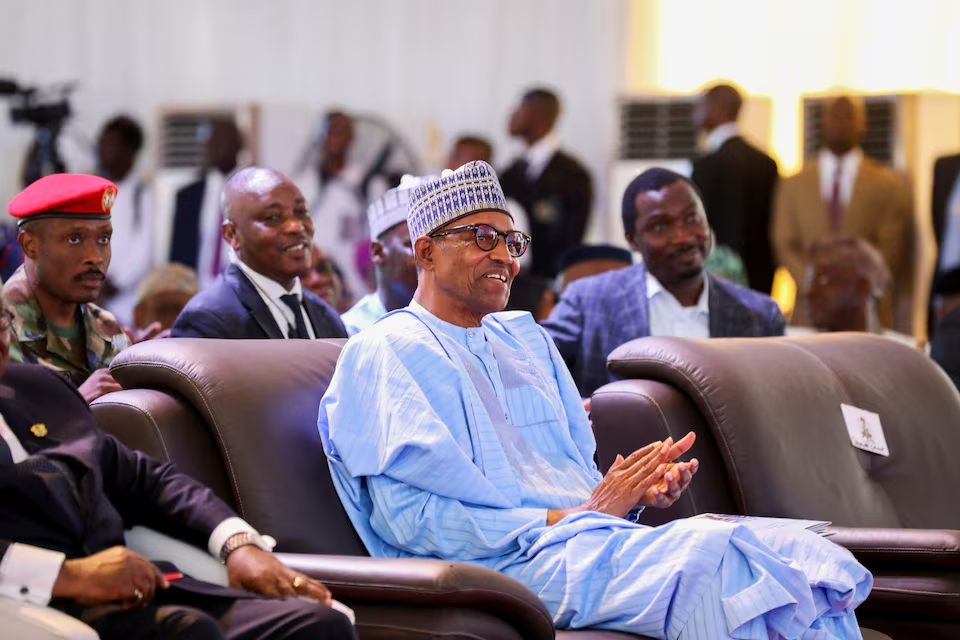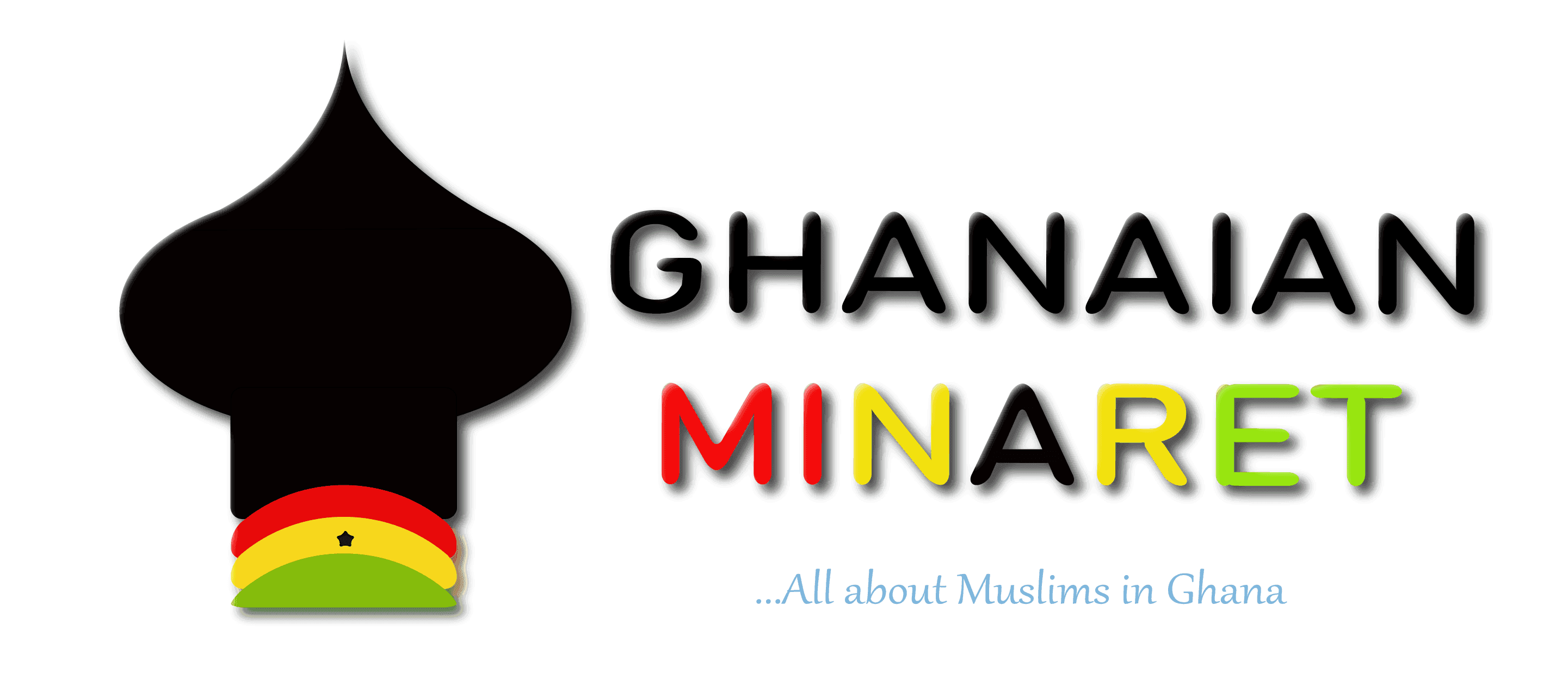Flags fly at half-mast in honour of late Muhammadu Buhari

Abuja: Nigeria’s president, Ahmed Bola Tinubu has ordered the flying of flags at half-mast following the death of the former Muslim President of Nigeria, Muhammadu Buhari in a London clinic at age, 82.
Buhari’s death was confirmed in a statement by his former special adviser, Garba Shehu, in a terse statement on Sunday evening.
“The family of the former president has announced the passing on of the former president, Muhammadu Buhari, GCFR, this afternoon in a clinic in London,” he said.
Buhari was Nigeria’s president from 2015 to 2023. He also served as the military Head of State between January 1984 and August 1985.
President Bola Tinubu, while confirming the development in a statement by his Special Adviser on Information and Strategy, Bayo Onanuga, said Buhari died in London at about 4:30 pm on Sunday.
“President Buhari died today in London at about 4:30 p.m. (1530 GMT), following a prolonged illness,” President Bola Tinubu’s spokesperson said in a post on X.
Tinubu also ordered Vice President Kashim Shettima to proceed to the United Kingdom to accompany the former president’s body back to Nigeria.
According to the statement, Tinubu has spoken with the former president’s widow, Mrs Aishat Buhari, and offered his deep condolences.
The statement read in part, “President Bola Ahmed Tinubu has announced the passing of his predecessor, President Muhammadu Buhari.
After three failed attempts, Buhari achieved a historic victory in 2015, becoming the country’s first opposition candidate to defeat an incumbent. In 2019, he was re-elected for another four-year term.
Buhari had always been popular among the low incomers of the north (known as the “talakawa” in the Hausa language), but for the 2015 campaign, he had the advantage of a united opposition grouping behind him.
Many of those who supported him thought his military background and disciplinarian credentials were what the country needed to get to grips with the Islamist insurgency in the north.
Buhari also promised to tackle corruption and nepotism in government and create employment opportunities for young Nigerians.
But his time in office coincided with a slump in global oil prices and the country’s worst economic crisis in decades.
His administration also came under fire for its handling of insecurity. While campaigning, he had promised to defeat the Islamist militant group Boko Haram.
But the group remains a threat, and one of its factions is now affiliated with the so-called Islamic State group.
There was also an upsurge in deadly clashes between farmers and ethnic Fulani herders in central Nigeria. Mr Buhari, a Fulani, was accused of not being tough enough on the herders or doing enough to stop the crisis.
The activities of so-called bandits in the north-western part of the country saw the abduction of hundreds of secondary school students.
Under his watch armed forces were accused of human rights abuses – like opening fire on anti-police brutality protesters at the Lekki tollgate in Lagos in October 2020.
Muhammadu Buhari was born in December 1942 in Daura in Katsina state in the far north of Nigeria, near the border with Niger. At the time, Nigeria was controlled by the British, and it would be another 18 years before the country gained independence.
Buhari’s father, who died when he was four, was Fulani, while his mother, who brought him up, was Kanuri. In a 2012 interview, Buhari spoke of being his father’s 23rd child and his mother’s 13th.
He said he only remembered his dad from when he and a half-brother fell off a horse.
The young Buhari attended primary school in Daura and then boarding school in the city of Katsina. After leaving school, he was admitted to the Nigerian Military Training College, joining the Nigerian army shortly after independence.
Buhari undertook officer training in the UK from 1962 to 1963 and then began his steady climb up the ranks.
In later years, Buhari attributed his disciplinarian bent to spending his formative years at boarding school, where corporal punishment was the norm, and in the military. He was “lucky” to have experienced such tough environments, which taught him to work hard, he said.
In 1966, there was a military coup and then a counter-coup in Nigeria – a time of upheaval for army officers – but Buhari always maintained he was too junior to have played any significant role.
Less than 10 years later, under a military government, Buhari had risen to become military governor of the northeast, an area then comprising six states.
After less than a year, Buhari, now in his mid-30s, was promoted again, becoming federal commissioner for petroleum and natural resources (in effect oil minister) in 1976 under Olusegun Obasanjo in his first spell as Nigerian head of state.
By 1978, Buhari, then a colonel, had returned to being a military commander. His tough stance in 1983 – when some Nigerian islands were annexed in Lake Chad by Chadian soldiers – is still remembered in the northeast, after he blockaded the area and drove off the invaders.
The end of 1983 saw another coup against elected President Shehu Shagari, and Buhari, now a major general, became the country’s military ruler.
By his own account, he was not one of the plotters but was installed (and subsequently discarded) by those who held the real power and needed a figurehead.
Other accounts suggest he played a more active role in removing Shagari than he was willing to admit.
Buhari ruled for 20 months, a period remembered for a campaign against indiscipline and corruption, as well as for human rights abuses.
About 500 politicians, officials and businessmen were jailed as part of a campaign against waste and corruption.
Some saw this as the heavy-handed repression of military rule. Others remember it as a praiseworthy attempt to fight the endemic corruption that was holding back Nigeria’s development.
Buhari retained a rare reputation for honesty among Nigeria’s politicians, both military and civilian, largely because of this campaign.
As part of his “war against indiscipline”, he ordered Nigerians to form neat queues at bus stops, under the sharp eyes of whip-wielding soldiers. Civil servants who were late for work were publicly humiliated by being forced to do frog jumps.
Some of his measures might have been seen as merely eccentric. But others were genuinely repressive, such as a decree to restrict press freedom, under which journalists were jailed.
Buhari’s government also locked up Nigeria’s greatest musical hero, Fela Kuti – a thorn in the side of successive leaders – on trumped-up charges relating to currency exports.
Buhari’s attempts to rebalance the public finances by curbing imports led to many job losses and the closure of businesses.
As part of anti-corruption measures, he also ordered that the currency be replaced – the colour of the naira notes was changed – forcing all holders of old notes to exchange them at banks within a limited period.
Prices rose while living standards fell, and in August 1985 Buhari was ousted and imprisoned for 40 months. Army chief Gen Ibrahim Babangida took over.
After his release and, he said, having seen the consequences of the break-up of the Soviet Union, Buhari decided to enter party politics, now convinced of the virtues of multiparty democracy and free and fair elections.
Despite this, Buhari always defended the 1983 coup, saying in 2005, “The military came in when it was absolutely necessary, and the elected people had failed the country.”
He also rejected accusations that his measures against journalists and others had gone too far, insisting that he had been merely applying the laws that others had been breaking.
He was elected president in 2015, becoming the first opposition candidate to defeat an incumbent since the return of multiparty democracy in 1999.
As president, Buhari made a virtue of his “incorruptibility”, declaring his relatively modest wealth and saying he had “spurned several past opportunities” to enrich himself.
He was plainspoken by nature, which sometimes played well for him in the media and sometimes badly.
Although few doubted his personal commitment to fighting corruption and there were several notable scalps, some questioned whether the structures enabling mismanagement had really been reformed.
And attempts to improve youth employment prospects were, at best, a work in progress.
Join our whatsapp channel for all the latest updates.
For news coverage, article publication, and advertisement, send an email to ghanaianminaret@gmail.com or reach us via whatsapp, telegram or phone call on +233266666773.

